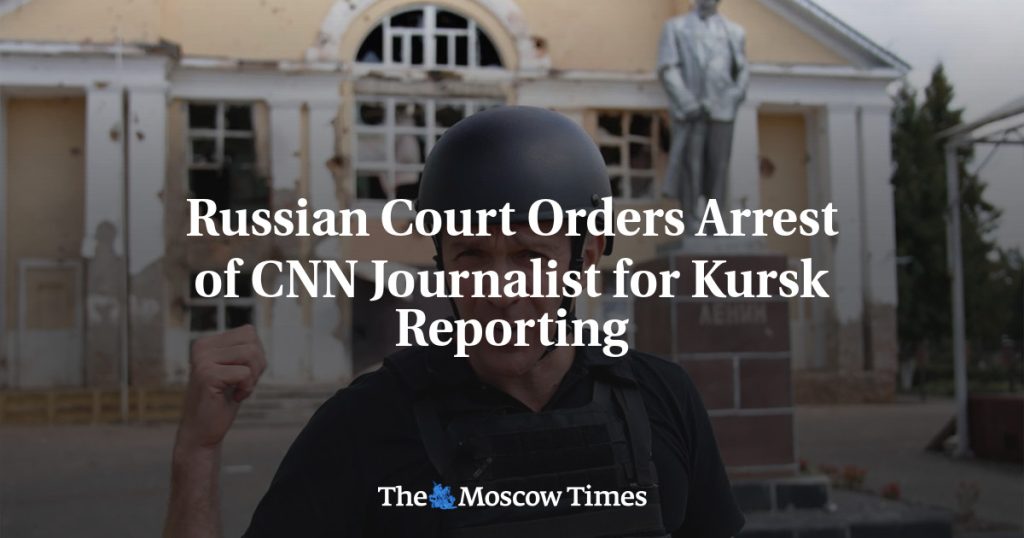In recent events, a Russian court has ordered the arrest in absentia of CNN journalist Nick Paton Walsh for reporting from Ukrainian-held territory in Russia’s Kursk region. This comes as Moscow has launched criminal proceedings against Western journalists who have produced reports from the Kursk region following Kyiv’s surprise August incursion. The journalists have been charged with illegally crossing the border, and the Leninsky court in the city of Kursk has ordered Paton Walsh’s arrest, demanding his extradition to Russia. Paton Walsh is a British journalist who previously reported for Channel 4 News and The Guardian newspaper in Moscow. Additionally, Russia ordered the arrest of two Italian journalists earlier this week for reporting from inside the Kursk region, where Ukrainian forces have been in control since August 6. The Russian government has also banned criticism of its Ukraine offensive.
The Moscow Times, an independent news organization, has faced challenges from Russia’s Prosecutor General’s Office, which has designated the publication as an “undesirable” organization. This has criminalized their work and put their staff at risk of prosecution. The authorities have labeled The Moscow Times as a “foreign agent” in an attempt to silence independent journalism in Russia. Despite these challenges, the journalists at The Moscow Times are refusing to be silenced and are continuing their work to provide accurate and unbiased reporting on Russia. The publication is calling for support from readers to help them continue their work in the face of repression.
With the Russian government cracking down on journalists reporting from the Kursk region and other areas, there is a growing concern for press freedom and independent journalism in the country. The actions taken against journalists like Nick Paton Walsh and The Moscow Times are seen as attempts to control the narrative and prevent criticism of the government’s actions, particularly in relation to the Ukraine offensive. By arresting journalists and labeling independent news organizations as “undesirable” or “foreign agents,” the Russian government is limiting the flow of information and attempting to suppress dissenting voices.
The arrest of Nick Paton Walsh and other journalists reporting from the Kursk region highlights the challenges faced by foreign journalists working in Russia. Despite efforts to report on important events and provide an accurate portrayal of the situation on the ground, journalists are being targeted and arrested for their work. This poses a serious threat to press freedom and the ability of journalists to operate without fear of reprisal. The international community has condemned Russia’s actions against journalists and called for greater protections for press freedom in the country.
As the situation in Russia continues to deteriorate for journalists, independent news organizations like The Moscow Times are calling for support from readers in order to continue their work. By providing financial support, readers can help ensure that independent journalism in Russia remains alive and well, despite the challenges faced by journalists working in the country. The efforts to silence independent voices and control the narrative in Russia are a direct threat to democracy and free speech. By standing with organizations like The Moscow Times, readers can help defend open and independent journalism in the face of repression.
In conclusion, the arrest of CNN journalist Nick Paton Walsh and the challenges faced by The Moscow Times are symptomatic of a broader crackdown on press freedom in Russia. The actions taken by the Russian government to silence independent journalists and label news organizations as “undesirable” are threatening the flow of information and limiting the ability of journalists to report on important events. It is crucial for the international community to support independent journalism in Russia and to advocate for greater protections for press freedom in the country. By standing with journalists like Nick Paton Walsh and organizations like The Moscow Times, readers can help defend open, independent journalism in the face of repression.


